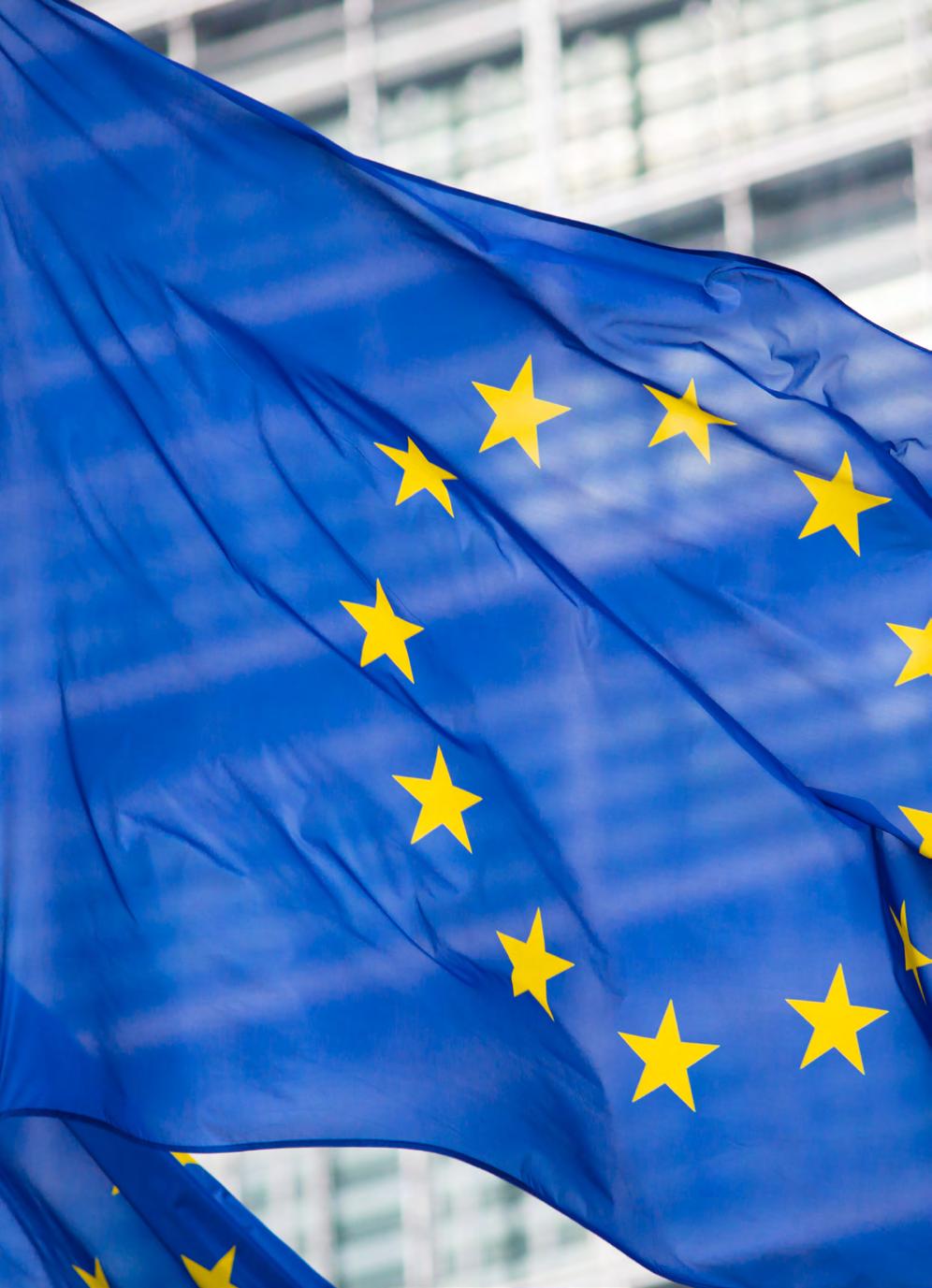
4 minute read
01 Set the agenda in Berlin and Brussels: We need health in all policies
Set the agenda in Berlin and Brussels: We need health in all policies 01
China’s approach to health and the health care sector is largely holistic and more structurally integrated than was the case in the EU until only very recently. Now the European Commission has proposed its EU longterm budget for 2021–2027. The Multiannual Financial Framework (MFF) legislation empowers the EU recovery plan 58 , including the EU4Health program promoting the health and prosperity of EU citizens in an integrated approach. These are welcome initiatives that now need to be well equipped with budget lines, further detailed and connected to existing strategies. In China, the view that an integrated health policy approach is beneficial for the country’s health, wealth, and social stability was evident throughout Healthy China 2030 and Made in China 2025. Of course, challenges remain in China with regard to raising health care coverage nationwide for all citizens, but tremendous progress has been made in China´s health care system particularly in the last three years. By contrast, EU countries had already been enjoying an overall high level of health-care coverage for decades. High standards of health and financial well-being have characterized Europe’s image for a long time: Europe has excelled at providing a solid social security system, including excellent health services. It has led the way in advancing innovation and high technology. However, until very recently the EU and most of its member states had not yet set up pro-active and holistic health policies to sufficiently secure these standards. Fortunately, that now seems to have changed with the recently proposed EU recovery fund and EU4Health programs that are part of the EU’s COVID-19 pandemic response. Their three pillars are aimed at creating a green, digital, and resilient Europe and assign a key role to the health care sector.
Welcome EU initiatives now need to be embedded in innovation-friendly policy environment
The health care industry welcomes the European Commission´s proposals and the EU Member States´ governments´ approval of the Coronavirus recovery fund 59 . It urges policymakers in Berlin and Brussels to now not only strive to uphold those values and achievements within the EU, but it also calls on all European legislators and governments to support this budget and proactively examine and ensure that all possible measures to advance health in all policies and create the most innovation-friendly environment possible are being taken.
Concretely, it seems very unfortunate that EU Member States slashed down the EU Commissions´ budget line proposals for health and innovation to such a large extent. Also highly needed funds for digitalization were not accorded. According to first sources in the time of writing, the EU4Health budget proposal was cut down from originally 9.3 billion Euro to 1.7 billion Euro, thus an 84 percent cut compared to the original EU Commission proposal from May 2020. Additionally, the Horizon Europe program is cut in both the MFF and Next Generation EU (NGEU) instrument, decreased to €75.9 billion in the MFF, €80.9 billion with the NGEU “boost”. This means a -14 percent cut compared to the Commission May 2020 proposal and even more than 30 percent less than what the EU parliament had previously asked for to ensure a globally competitive EU economy 60 .
58
European Commission, EU long-term budget 2021-2027: Commission Proposal May 2020, <https://ec.europa.eu/info/strategy/eu-budget/eu-long-termbudget/2021-2027_en> (accessed on 17.07.2020).
59
60
European Council, Council Conclusions of EU Summit on EU Coronavirus Recovery Fund 21 July 2020, <https://www.consilium.europa.eu//media/45109/210720- euco-final-conclusions-en.pdf>; (accessed on 21.07.2020).
Forschung erhält weniger EU-Geld als geplant, in: Handelsblatt, 21.07.2020, <https://www.handelsblatt.com/politik/deutschland/beschluesse-des-eugipfels-forschungspolitik-erhaelt-weniger-eu-geld-als-geplant/26025042. html>, (accessed on 22.07.2020).
EU Funds need to be used wisely and effectively
In times of highly needed investment to improve health care, uphold competitiveness in high tech industries and mitigate recession, it is crucial to quickly accord the overall budget lines by national legislators and then use the fund wisely and even more effectively. It therefore needs concrete measures, incentives and improved frameworks, to refine and fully unfold the potential of the EU4Health program and other relevant strategies such as the EU industrial strategy and innovation and pharmaceutical strategy. Now is the time to respond appropriately to the challenges of an aging society, the opportunities of digitalization, and the need to ensure growth, by investing in innovation and high technology. By this, more resilient health care systems and economies can be ensured. As health care becomes more and more digitalized, protecting private health care data is becoming more crucial. Europe and Germany should use their high data protection standards as a competitive advantage, rather than viewing it as a hindrance compared to China and the United States. Citizens rely on policy makers to protect their data while allowing digital innovation to flourish. Data governance should allow for appropriate and safe use of data at scale, to enable critical insights and accelerate innovation in order to achieve an overall faster, safer, and better administration of health care.
The health industry is calling on the EU and Germany to integrate health in all policies and to combine provision of better health services for patients with incentives for further economic growth. The EU should focus on and further develop the internal and external dimensions of health policy in order to safeguard jobs, sustainable growth, and people’s wellbeing.










